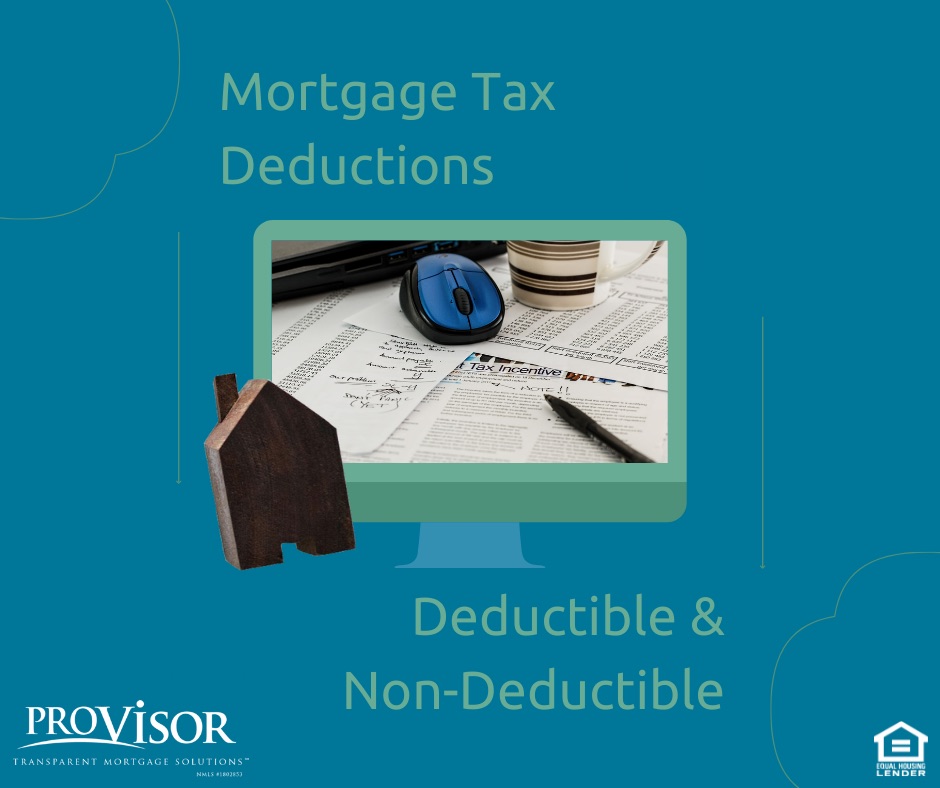Mortgage Tax Deductions

Tax season is here, and that means that many of us are figuring out what deductions we can claim. Luckily, interest for mortgages can be deducted (providing your loan meets IRS mortgage requirements). This is called a Mortgage Interest Deduction.
What is a Mortgage Interest Deduction?
The mortgage interest deduction is a tax deduction you can claim for interest paid on the first $1 million of mortgage debt; homeowners who bought houses after December 15, 2017, are able to deduct interest on the first $750,000 of the mortgage. In order to claim the mortgage interest deduction, you will need to itemize your tax return.
What Qualifies as Mortgage Interest?
- Property can be a house, co-op, apartment, condo, mobile home, house trailer or houseboat
- Home must be collateral for loan
- Home must have sleeping, cooking, and toilet facilities
- If you get a nontaxable housing allowance from the military or through the ministry, you are still able to deduct your home mortgage interest
- In the case of divorce, a mortgage that is obtained in order to “buy out” your ex’s half of the house counts
These are just a few items that qualify as Mortgage Interest. Other items you may want to look into include:
• Interest on a mortgage for your second home
• Points you paid on your mortgage
• Late payment charges on a mortgage payment
• Prepayment penalties
• Interest on a home equity loan
• Mortgage insurance premiums
While these are all potential qualifications for a mortgage interest deduction, there are some things that are not deductible. These items include:
• Homeowners & Title insurance
• Extra principal payments you make on your mortgage
• Settlement costs (most of the time)
• Forfeited deposits, down payments or earnest money
• Accrued interest on a reverse mortgage
In order to claim the mortgage interest deduction you will need to:
- Look out for Form 1098; this will be sent by your mortgage lender. This form is typically sent in January or early February.
- Be sure to keep good records. This may come in handy as you may be able to deduct mortgage interest in various situations, such as:
You used part of your home as an office
You were a co-op apartment owner
Rented out part of your home or home was a timeshare
Portion of the house was under construction or destroyed during the year.
You used part of the mortgage proceeds to pay down debt, invest in a business or do something unrelated to buying a house.
Divorced or separated and you or your ex has to pay the mortgage on a home you both own (the interest could be deemed alimony)
You and someone who is not your spouse were liable for and paid mortgage interest on your home
* Keep in mind that the more deductions you are able to claim, the more complex the rules get. Be sure to consult with a qualified tax pro, to be sure you are following applicable tax laws.
- Taxes must be itemized; you will not be able to take the standard deduction when you have your taxes prepared.
- When you meet with your tax preparer you can also see if you qualify for any special deduction rules. Be sure to notify them of any state help you received as you may be able to deduct all payments made on your mortgage throughout the year.
If you don't currently have a mortgage and are thinking about purchasing a home in the areas of Milwaukee, Waukesha, Brookfield, Madison East Troy, or the Midwest, contact one of our loan experts at ProVisor!

*Make sure you consult a tax advisor to maximize all of your tax benefits







